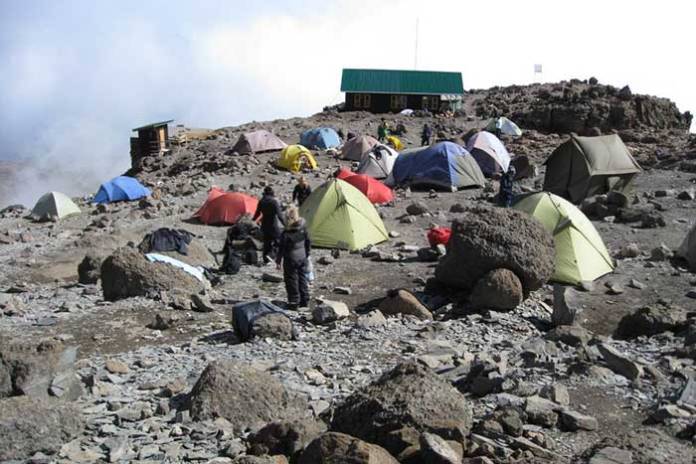
Long-distance hiking is not meant to be a leisurely stroll. It is a strenuous physical activity requiring a high fitness level, but there’s more to it than you might expect. There is a direct connection between your level of mental fitness and your enjoyment of the hike. In this article, an experienced mariner and a former naval officer, Captain Jako Hall, offers some tips for getting in shape, mentally and physically, before you hit the trail.
A common misconception about long-distance hikes—we’re talking about being on the trail for weeks at a time—is that they are like weekend backpack getaways, but longer. Of course, you should work up to these long distances to ensure peak physical fitness, but don’t forget to train for the mental aspects of the adventure as well.
To spend a week or more on the trail, you’ll need to be an experienced hiker. If you’re new to the sport, start with single-day hikes ranging in distance from five to 15 miles, depending on your physical condition. Hiking is so popular because nearly everyone can participate. If five miles is a personal best for you, start there and work up to 15 miles in a single day-hike.
If you’re an experienced hiker and 15 miles is well within your capabilities, try a two-day adventure and log back-to-back 15 milers, and this will give you a good idea of how prepared you are physical. It is not uncommon to hike several consecutive days in excess of 15 miles during long-distance hikes.
As you’re getting prepared physically, pay close attention to how your mind reacts when exhausted and lonely. Many would-be long-distance hikes end prematurely because the hiker was mentally and emotionally unprepared.
Day-hikes and weekenders may not adequately prepare you for the uncertainty that accompanies a long-distance journey. When you begin a distance hike, you’ll have a plan that includes your route and how many miles you hope to cover each day, but that plan may need to be revised over and over depending on weather, sore muscles, and a thousand other factors. So be prepared to be uncertain about the exact route you will take and how long it will take to complete the hike. This uncertainty can cause some hikers to experience anxiety.
Even if hiking with your significant other or a close friend, many hikers experience loneliness. You will miss your daily routine, the people you usually see each day, even social media and work connections, not to mention your comfortable bed. Be aware that you might feel depressed and discouraged at times along the trail. Talk to your hiking partner to let them know how you’re feeling and encourage them to do the same. These feelings typically pass, but there may be times when you want to give up and just go home to all that you are used to. Hang in there; it will be worth it.
The best way to prepare physically for a long-distance hike is to hike—a lot. Make sure your feet and legs are in good condition and that your doctor has given the go-ahead. Work up to the main event by ever-increasingly longer and longer hikes to prepare mentally. Take note of how you feel and how you react to those feelings.
About Jako Hall
Jako Hall is an experienced mariner and a former naval officer known for his strong work ethic and ability to lead and motivate crews. He pursued Maritime Studies at the University of Technology in Cape Town and has received the highest level of training in Navigation and Seamanship during his years in the Navy. After 13 distinguished years in the Navy, Jako joined the superyacht industry, following his passion for creating unique and exclusive experiences for high-net-worth clients. He’s managed multi-million euro projects that required attention to detail and efficiency and has a proven track record of operating at sea in remote and unsupported areas.











